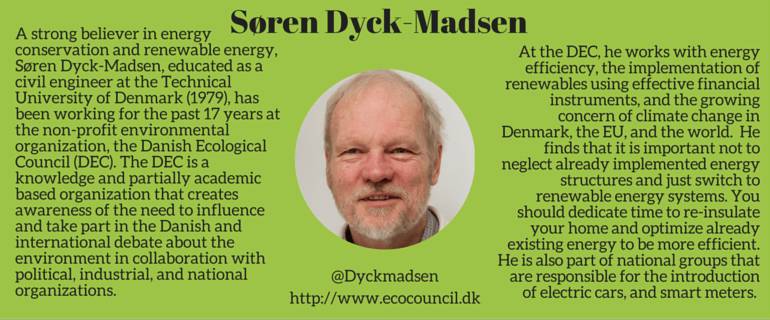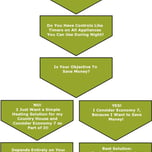Answer these simple questions and we will find you the BEST prices
Which type of solar quotes do you need?
It only takes 30 seconds
100% free with no obligation

Get up to 4 quotes from our selected suppliers by filling in only 1 form

Save money by comparing quotes and choosing the most competitive offer

Our service is 100% free and with no obligation
- GreenMatch
- Blog
- Are We Any Closer to Solving Energy Poverty?
Are We Any Closer to Solving Energy Poverty?
To Combat World Poverty, We Must Combat Energy Poverty
We at GreenMatch have asked a few questions to two energy poverty experts whether we are any closer in combating energy poverty by increasing access to renewable forms of energy if we are to solve the problems associated with poverty on a global level. Here’s what they had to say!

With the growing production and increased investments in renewable energies, are we any closer to combating global energy poverty?
Yes, the lower costs and the increased investments in renewable energy surely helps combating global energy poverty. However, in order to fully understand this you have to look at the different energy systems from producers, distributors and consumers. In order to get the full and most cost effective effects from renewables in already functioning energy systems around the world, energy efficiency is essential.
Very often the reduction of wasted energy is the most cost effective way to improve the function of the energy system and thus to reduce energy poverty. Insulation of poorly insulated houses in cold areas of the world is much more effective to combat energy poverty than introducing more renewables. Thus, energy efficiency comes in as the “First fuel”, followed by renewables as the “Second fuel”.
In large parts of the world, no real energy system exists. Here the cheaper and cheaper renewables will make it possible to provide energy to especially rural areas without having to establish a traditional energy system first.
What (low cost) innovative ideas related to renewable energy do you think would enable low income countries and emerging markets to catch up to the developed world? What challenges could be possible road blocks?
In many poor countries, you often are stuck with a very expensive energy possibility based on diesel generators. Here systems with a combination of renewable energy systems and storage possibilities are the solution that could provide both cheaper, reliable and climate friendly energy for the poor. But you have to tackle one big barrier, finance and security for investments.
Diesel based system are cheap to install and have large running costs. Renewable based system need all the cost as investment and have almost no running costs. But if you are poor and live from day to day you simply cannot afford the investment. So in order to reap the benefits of cheaper renewables development of investments schemes to help poor people to invest in better and cheaper renewable energy sources are the biggest challenge.
It is expected that fossil fuels will be depleted the next 100 years. Will we come to a point where the world could be powered solely by renewable energy?
More correctly, in order to avoid or easy the ongoing climate crisis most fossil fuels have to stay unburned underground. We have to stop burning fossil fuels long before any depletion is relevant. Therefore, the evaluation of the amount of fossil fuel resources is not relevant. The change from using fossil fuels to using renewables are the way to go to fulfil the basic energy needs of the world – aiming to remove energy spills first. Here the Paris agreement last year and the trend that investments are shifting to renewables (despite the drop in prices for fossil fuels) are encouraging.
But fulfilling the dream of a world 100 % fueled by renewable sources requires a lot of rethinking of the existing energy systems in the rich world, where backup systems and flexibility in use of energy needs to be introduced in energy systems based on fluctuating renewables. Actually, renewables could be easier to introduce in poor countries where no energy systems exists since much stranded costs and investments here are avoided. However, capital for investments are needed to provide poor people with energy in a cost-effective and climate friendly way.

With the growing production and increased investments in renewable energies, are we any closer to combating global energy
poverty?
There has been consistent progress to tackle global energy poverty for the last two decades, and without a doubt, the increased investment in renewable energy is now contributing to this. According to the World Energy Outlook, the number of people globally that have no access to electricity has fallen from 1.6 billion people in 2002, to 1.2 billion people today. The overwhelming majority of these people live in Sub-Saharan Africa and South Asia.
These improvements in electricity access come despite an increase in population of almost 1 billion people around the world. However, though progress has been made on this issue, during that same period (2002 to present), the number of people relying on burning biomass for cooking and heating has increased from 2.4 billion to 2.8 billion. This shows that though progress is being made, there is still a significant way to go before we can claim to have eradicated global energy poverty.
The Millennium Development Goals made no mention of energy access when they were announced in 2000, but Goal 7 of the Sustainable Development Goals - ensure access to affordable, reliable, sustainable and modern energy for all – is evidence that the world is now aware of, and committed to, combatting energy poverty as a means to eradicate global poverty. This is a strong commitment by the world’s leaders, and it is likely that renewable energy will be at the heart of any policies to achieve this ambitious target. Already we have seen initiatives in India and East Africa which will invest heavily in renewable energy technologies in order to combat energy poverty.
Here at Renewable World, we recognise that the fight to eradicate poverty and the fight to combat climate change, are two sides of the same coin. Global poverty cannot be overcome, particularly energy poverty, by continuing to burn fossil fuels, because the results of burning fossil fuels disproportionately affect those in poverty, therefore prolonging or worsening the situation.
What (low cost) innovative ideas related to renewable energy do you think would enable low income countries and emerging markets to catch up to the developed world? What challenges could be possible road blocks?
Renewable energy technologies alone are unlikely to allow developing nations to “catch up” with the rest of the world. The poverty problem that is present in the world is multidimensional and needs addressing through a variety of different methods, in numerous arenas. There are economic barriers, resource scarcity, climate change impacts, political instability, war and conflict, and numerous other factors which play a role in why the developing nations lag behind the developed world.
There is no panacea for poverty alleviation and so no quick, innovative, or low cost complete solution for the developing countries to turn to. Renewable energy however is undoubtedly one of the greatest weapons available in the fight against global poverty. Improved energy access impacts positively on a wide number of human development indicators, be they health, education, or income, and it does so without causing the environmental damage that is present when using fossil fuels. Investment in renewable energy is a crucial pillar in any country’s plan to alleviate poverty, but it will not achieve its aims without being used alongside progressive policies in other areas.
This multifaceted approach manifests itself throughout our own work. Alongside our renewable energy installations, we provide financial and business training, establish governance and committees for the project, utilise a sustainability toolkit, and work at local, regional, or national level to ensure necessary legislation is in place.
It is expected that fossil fuels will be depleted the next 100 years. Will we come to a point where the world could be powered solely by renewable energy?
There was a time whereby scientists, politicians, and the like believed that humanity will reach a stage whereby all fossil fuels will be used, leaving the planet with no more resources to burn. However, in recent years, this thought has been largely discredited. The very real concern now is that we will never be able to use all the fossil fuels that we have before the Earth becomes uninhabitable for humans. At the rate that humans are using fossil fuels, the rate that climate change is increasing, and the estimated amount of fossil fuels still in the ground, the belief is that we will ruin the planet before we even reach the point of running out of fossil fuels. It is this fact that has led to campaigns such as The Guardian’s Keep It In The Ground and seen advocacy groups and citizens encouraging organisatons and businesses to divest from fossil fuels and move to renewable technologies instead.
Theoretically it is possible for the world to be powered by nothing other than renewable energy. Realistically however, we are yet to reach this stage. Many advancements in technology need to occur before it becomes a reality, but if there is one thing that history has taught us, it is that we should never underestimate human ingenuity. If it is possible, it is not a matter of if, but more a matter of when. Undoubtedly, as long as we as a species have not damaged the Earth beyond repair, there will be a time in our existence whereby renewables provide our sole source of energy for all of our needs.
At that point, we will truly live in a Renewable World!
In order for the world to completely combat poverty, we must tackle the challenges many countries face in terms of energy poverty. By doing so, we will be able to say that we are truly gaining a step closer at combating world poverty.
We strive to connect our customers with the right product and supplier. Would you like to be part of GreenMatch?




